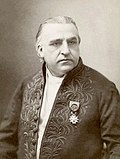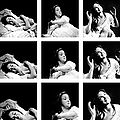Jean-Martin Charcot
Jean-Martin Charcot (29 November 1825 – 16 August 1893) was a French neurologist and professor of anatomical pathology. He is best known for his work on hypnosis and hysteria, and is often referred to as the founder of modern neurology. His work greatly influenced the development of various fields within medicine, including psychiatry and neurology.
Early Life and Education
Jean-Martin Charcot was born in Paris, France. He began his medical education at the University of Paris in 1843, where he developed an interest in the workings of the nervous system. Charcot's dedication to his studies and his innovative research methods quickly set him apart from his peers.
Career
After completing his education, Charcot joined the faculty at the University of Paris. He worked at the Salpêtrière Hospital, where he conducted research on diseases of the nervous system. Charcot's work at the Salpêtrière was groundbreaking; he was among the first to systematically categorize neurological disorders. He is credited with identifying and naming multiple sclerosis and Charcot-Marie-Tooth disease.
Charcot's interest in neurology extended to the study of hysteria, which he believed was a neurological disorder. He used hypnosis as a treatment and research tool, demonstrating that hysteria could be induced and removed in some patients under hypnosis. This work was controversial at the time but laid the groundwork for future psychological and neurological research.
Legacy
Jean-Martin Charcot's contributions to medicine were vast. He trained and influenced a generation of doctors and scientists, including Sigmund Freud, who would go on to found psychoanalysis. Charcot's methods of clinical observation and his approach to teaching through patient demonstrations are still used today.
Charcot was also known for his work in medical education, particularly his use of photography and live demonstrations to teach about neurological disorders. His lectures were popular and attracted students and professionals from across Europe.
Death and Recognition
Charcot died on 16 August 1893 in Morvan, France. His legacy lives on through his numerous contributions to neurology and psychiatry. The Charcot Award, named in his honor, is given for outstanding research in multiple sclerosis.
Selected Works
Jean-Martin Charcot's most notable works include:
- Lectures on the Diseases of the Nervous System - A collection of his lectures, which became a foundational text in neurology.
- Research on multiple sclerosis and Charcot-Marie-Tooth disease.
See Also
Transform your life with W8MD's budget GLP-1 injections from $125.
W8MD offers a medical weight loss program to lose weight in Philadelphia. Our physician-supervised medical weight loss provides:
- Most insurances accepted or discounted self-pay rates. We will obtain insurance prior authorizations if needed.
- Generic GLP1 weight loss injections from $125 for the starting dose.
- Also offer prescription weight loss medications including Phentermine, Qsymia, Diethylpropion, Contrave etc.
NYC weight loss doctor appointments
Start your NYC weight loss journey today at our NYC medical weight loss and Philadelphia medical weight loss clinics.
- Call 718-946-5500 to lose weight in NYC or for medical weight loss in Philadelphia 215-676-2334.
- Tags:NYC medical weight loss, Philadelphia lose weight Zepbound NYC, Budget GLP1 weight loss injections, Wegovy Philadelphia, Wegovy NYC, Philadelphia medical weight loss, Brookly weight loss and Wegovy NYC
|
WikiMD's Wellness Encyclopedia |
| Let Food Be Thy Medicine Medicine Thy Food - Hippocrates |
Medical Disclaimer: WikiMD is not a substitute for professional medical advice. The information on WikiMD is provided as an information resource only, may be incorrect, outdated or misleading, and is not to be used or relied on for any diagnostic or treatment purposes. Please consult your health care provider before making any healthcare decisions or for guidance about a specific medical condition. WikiMD expressly disclaims responsibility, and shall have no liability, for any damages, loss, injury, or liability whatsoever suffered as a result of your reliance on the information contained in this site. By visiting this site you agree to the foregoing terms and conditions, which may from time to time be changed or supplemented by WikiMD. If you do not agree to the foregoing terms and conditions, you should not enter or use this site. See full disclaimer.
Credits:Most images are courtesy of Wikimedia commons, and templates, categories Wikipedia, licensed under CC BY SA or similar.
Contributors: Prab R. Tumpati, MD



